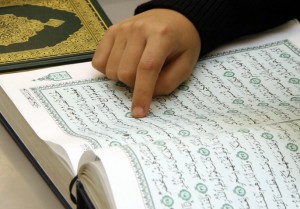As part of a recent series of academic budget cuts, Islamic Studies will no longer be offered as a minor or as a concentration in the Intercultural Studies major. Decisions to make such cuts began back in October, with various meetings with the Academic Council, faculty, and the academic affairs committee of the board of trustees aiding the decision-making process. Academic Dean Linda Mills Woolsey, in charge of making such cuts, stated that, “Ultimately, the decision is my decision as the dean, so I take responsibility for it even though I’ve consulted with other people,” adding that “the decision making for these things is a process.”

One of the driving reasons behind the cuts is a lack of student interest and enrollment in the program. The Islamic Studies program had managed to occupy a middle ground in terms of enrollment in the early years after its initiation in 2006; however, enrollment numbers have since dwindled. The minor has managed to maintain an average of 8.2 minors every five years between 2009 and 2013, but the concentration in the Intercultural Studies major experienced a decline in numbers between 2011 and 2013, averaging 3.6 majors with the Islamic Studies concentration per five years. This year the minor numbers three students while the concentration numbers two. Mills Woolsey cites an overall decline in college enrollment as one of the reasons behind the shrinking of the program, but admits that certain disciplines have suffered more than others. “As our enrollment has declined, it hasn’t declined proportionately across the board, so we’re investing a lot in really small majors.” Michael Walters, chair of the religion, theology, and Bible departments, takes a different view. “I know our numbers in our department have been down a little bit, so I think it’s reasonable to assume that the pool of students who would normally be interested in that sort of thing has been a bit smaller than it was in the past, but I don’t think that’s a sufficient explanation.” Mills Woolsey also expressed a sense of confusion at the lack of student interest. “I thought with the coming of the Arab Spring there would be a resurgence in student interest in Islam, so I don’t know whether it’s that our students aren’t interested in that or that there’s something about the way we framed the minor or the concentration didn’t have a broad enough usefulness for students.”
Further rationale for the cuts determined that the funds from the minor and concentration were needed more in certain under resourced disciplines such as finance, digital media, and biochemistry. According to Mills Woolsey, the cut of the Islamic Studies program is part of the college’s effort to deal with problem areas “where we need to make full-time hires and we don’t have the budget to make those hires, so right now we’re looking at, and will continue to throughout the course of this year, minors and concentrations that have very few students.”
Another problem for the program is its dependence on two part-time professors also engaged in missions work, a situation which creates potential for future career conflicts. “It’s just owing to the good generosity of the missions agencies that Drs. Hegeman and Little work with that we’ve been able to do what we’ve done,” said Walters. “I think that’s very unsettling to a college administrator. What happens if those missions organizations simply say, “we need you to be full-time in Benin or Morocco’? We don’t have anybody in our department who can teach that stuff.” There had been consideration of merging Islamic Studies with the religion department with religion professors teaching similar classes, but, as Walters further explained, “I don’t think we have faculty right now in the department that are qualified to do it.”
While various faculty members expressed regret at the cuts, there is some agreement that changes need to be made to its structure if there is any chance for its reinstatement in the future. Marcus Dean, chair of the Intercultural Studies department, attested to the diversity of the program in its applications, stating that “Some focus on developing an academic understanding of Islam and some are more outreach or missions focused. This makes the content applicable in diverse areas of service. For example, one of the Islam courses has been an option for international development programs.” Walters also cited applications in international business.
Mills Woolsey wondered if more areas could be covered in the program to capture student interest. “Islamic Studies as we’re doing it is primarily the study of Islam as a world religion and a study from an apologetic, missiological perspective, which are very good things, but it may be that there’s not a big enough group of students who want that perspective on Islam. The other areas where you could study Islamic culture would be social, political, even the art and architecture of the Islamic world. Islamic Studies is kind of a broad field.” She added, “It’s obvious that Islamic Studies is an important field of study, but we haven’t framed it in a way that’s attracting a lot of students, so we have to go back to the drawing board and see what can be done to make this more inviting to students, more accessible to students… sometimes you do have to take something down to build it up again.”
